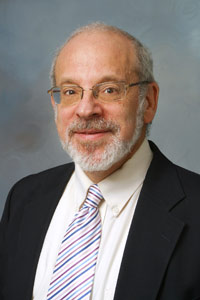Assembly Bill 415 brings a lot of potential for fair maps, but leaves a key question unanswered
This week, Republicans in the Wisconsin State Assembly introduced a bill purporting to establish independent redistricting in Wisconsin. After amendments, it passed with unified GOP support and 1 Democratic vote on Thursday night.
The rushed legislative process and lack of full, public hearings left many aspects of the legislation ill-understood, and many Democrats criticized the political calculus behind the bill’s abrupt timing.
Setting aside the purported motives of legislators, this blog post will consider the specific aspects of Assembly Bill 415, as ultimately amended.
AB415 outlines a redistricting process similar to the one used in Iowa. Here is a simplified description:
- The State Legislative Reference Bureau (LRB) draws legislative maps in consultation with an independent redistricting commission. The LRB maps must be drawn without regard for partisan strength and incumbent addresses. They must contain equal populations, meet federal civil rights requirements, be contiguous, compact, preserve municipal boundaries as much as possible, and use locally-drawn wards as their basic buildings blocks (4.007).
- The legislature must take an up-or-down vote on the LRB maps. They cannot offer any “amendments except those of a purely corrective nature” (p7, l16).
- If the legislature fails to pass the plan, or the governor vetoes it, the LRB tries drawing the maps again, taking into account the other body’s complaints, so long as those complains are consistent with the LRB’s nonpartisan criteria.
- The legislature once again votes on the LRB’s new maps, still without the ability to substantively amend them.
- This process of voting and LRB revision continues until the maps are either passed (and signed by the governor), or until “January 31 of the 2nd year following the federal decennial census” (Amendment 5).
If no LRB plan is passed by this date, the next steps are unclear.
The text of the bill reads, “No plan may be considered and voted on after January 31 of the 2nd year following the federal decennial census.” Elsewhere, the bill states, “’Plan’ means a plan for legislative reapportionment prepared under this subchapter.”
In one reading, this prohibits the legislature from considering an LRB plan after January 30, but it does not prevent them from passing a plan not created by the LRB. Does this mean that the legislature could simply run out the clock on LRB plans, before passing one entirely of their own devising?
Of course, this strategy would probably require one party to control both the legislature and the governor’s office. What if the legislature and/or governor reaches an impasse, and is unable to pass any map, whether derived by themselves or the LRB?
The bill is silent on this scenario. Currently, either a federal court or the state Supreme Court draws maps for the state, if the political branches of the government fail. Presumably, that status quo would remain in effect. But, again, AB415 offers no clarity.
The parts of this bill that deal with the LRB criteria for drawing maps strike me as quite good. They lay out widely accepted criteria for drawing fair maps, using reasonably clear definitions. Maps drawn using that guidance would be genuinely neutral; although, Wisconsin’s asymmetrical political geography would still give Republican an advantage in a 50-50 election year.
For me, the crux of this bill rests with that January 31 deadline. What happens if no LRB plan is passed after that time?
Is it true that the legislature can pass whatever they want at that point? If so, this means that under unified government (as in 2011) either party can gerrymander to their heart’s content. Under divided government (as we have now) a court intervenes, following a process of their own devising.
This is hardly different than the status quo, which put Wisconsin in its current predicament.
The drafters of Amendment 5 appear to have made an important concession. Before that Amendment was passed, the bill allowed the legislature to amend the LRB’s 3rd proposal however they pleased, including replacing it entirely. Obviously, this is unpalatable to the minority party.
Amendment 5 removes the ability of the legislature to substantively amend any LRB plan. But it may replace that ability with a simple deadline, after which the legislature may pass whatever partisan plan it desires.
A better law would clear up this confusion. One option would be specifying that the Wisconsin Supreme Court chooses from among the LRB plans if the January 31st deadline passes unmet. This would go a long way towards removing partisan bias in Wisconsin’s legislative maps.

 Alan J. Borsuk has been the Law School’s senior fellow in law and public policy since fall 2009—call it 14 years. So, for a not wholly impertinent point, he has some time to go before replicating his 37 preceding years as a reporter and editor at the Milwaukee Journal and Milwaukee Journal Sentinel. In any event, during his time with us, he has kept his hand in the newspaper with the occasional—nay, frequent—column on K–12 education policy and practice in this region. Why?
Alan J. Borsuk has been the Law School’s senior fellow in law and public policy since fall 2009—call it 14 years. So, for a not wholly impertinent point, he has some time to go before replicating his 37 preceding years as a reporter and editor at the Milwaukee Journal and Milwaukee Journal Sentinel. In any event, during his time with us, he has kept his hand in the newspaper with the occasional—nay, frequent—column on K–12 education policy and practice in this region. Why?



